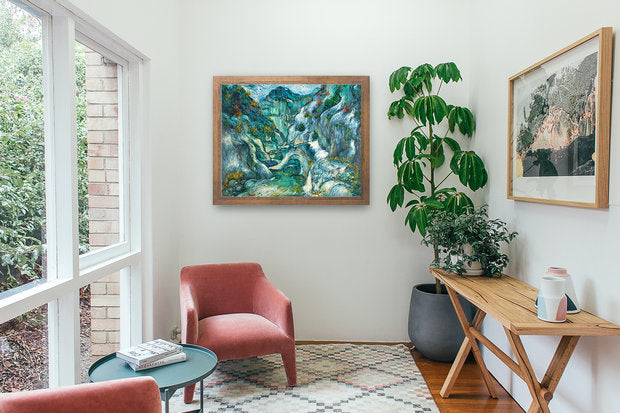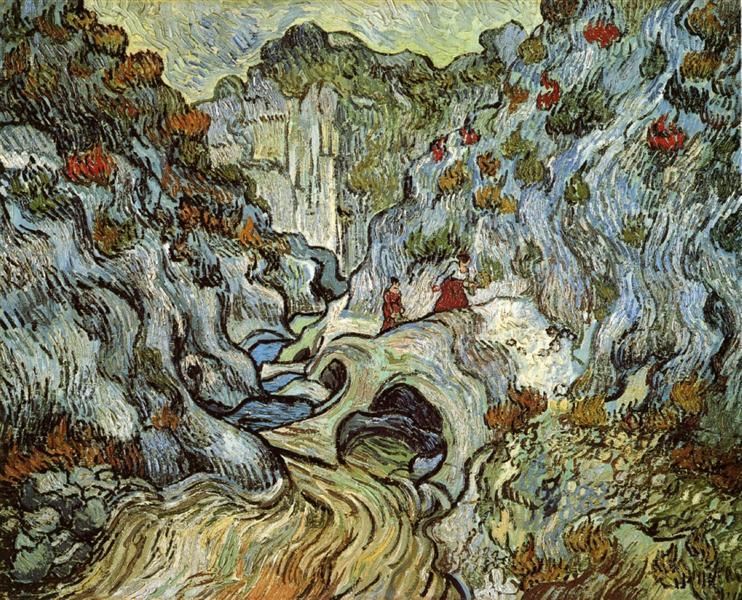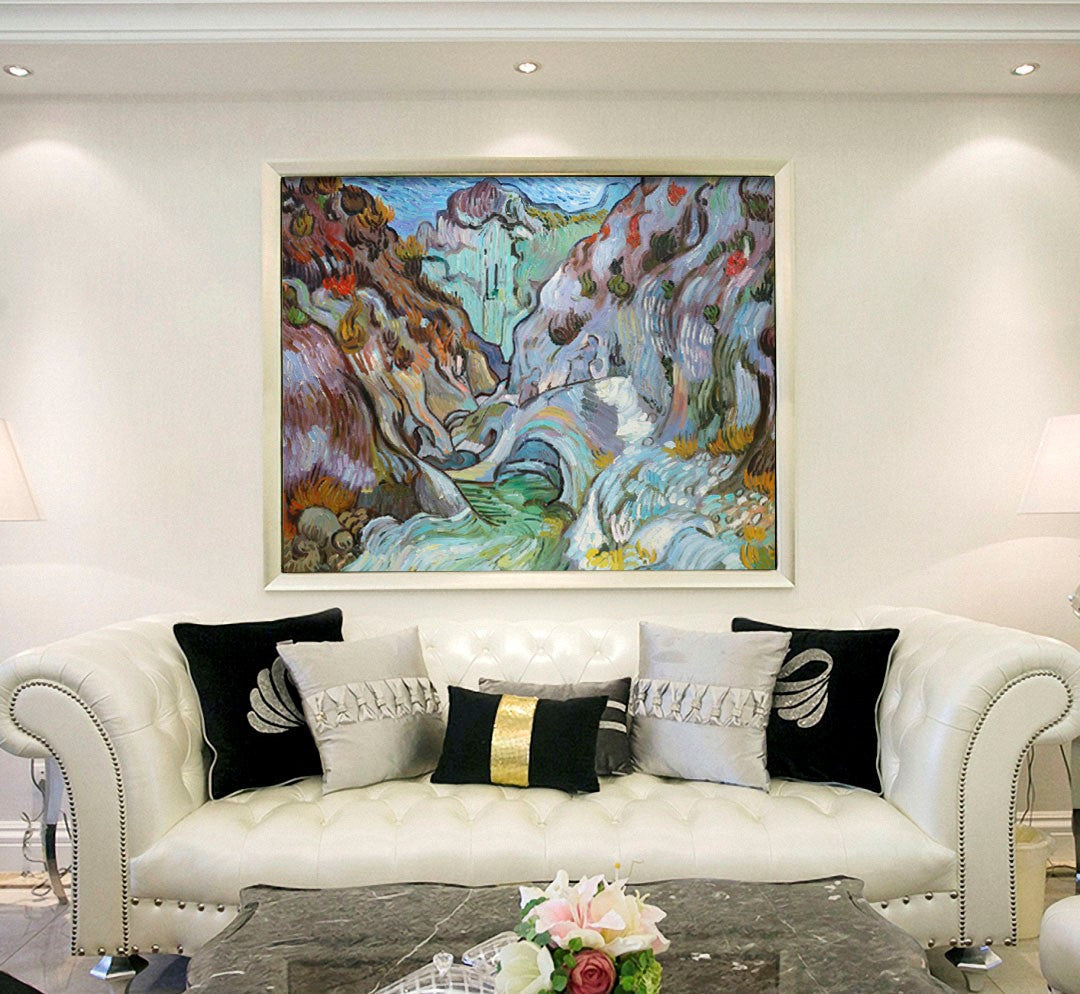Description
The painting "The Ravine of the Peyroulets" by Vincent Van Gogh is a masterpiece of post-impressionist impressionism. This work was created in 1889, during his stay at the Saint-Paul-de-Mausole psychiatric hospital in Saint-Rémy-de-Provence, France.
The composition of the painting is impressive, with a deep, rocky ravine stretching towards the horizon. Van Gogh's technique is unique, with bold, thick brushstrokes creating a vibrant and dynamic texture on the surface of the painting.
Color is another outstanding aspect of this work. Van Gogh uses a bright, saturated color palette, contrasting with the dark, earthy tones of the ravine. Bright green and yellow tones create a sense of light and movement in the painting.
The story behind this work is fascinating. Van Gogh was inspired by the natural landscape of the Provence region, where he spent much of his life. The Peyroulets ravine is a real place, located near the city of Arles, where Van Gogh lived for a while.
In addition, there are little known aspects about this painting. Van Gogh is believed to have created it while in a particularly agitated state of mind, which is reflected in the energy and intensity of the work. It is also known that Van Gogh had a great admiration for nature, and this painting is a tribute to the beauty and majesty of the natural landscape.
In short, "The Peyroulets Ravine" is an impressive work of art that combines technique, color and history to create a unique visual experience. This painting is a perfect example of Van Gogh's artistic style and his love of nature.



